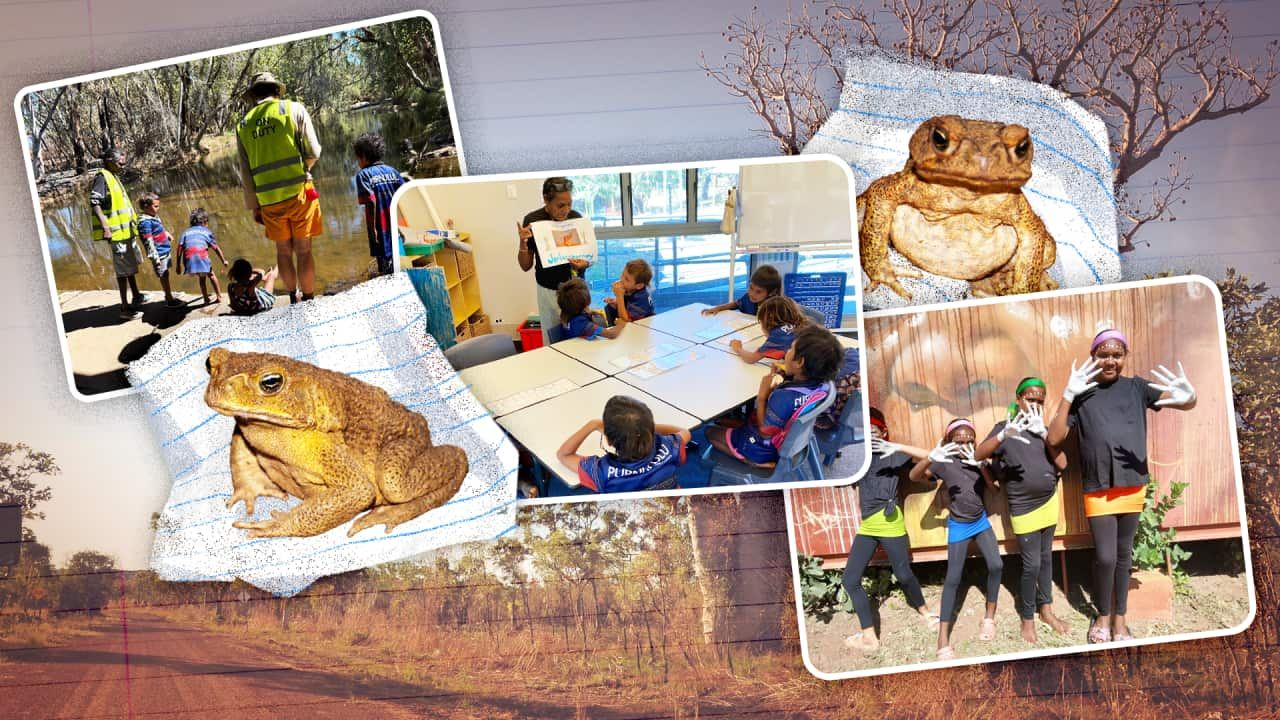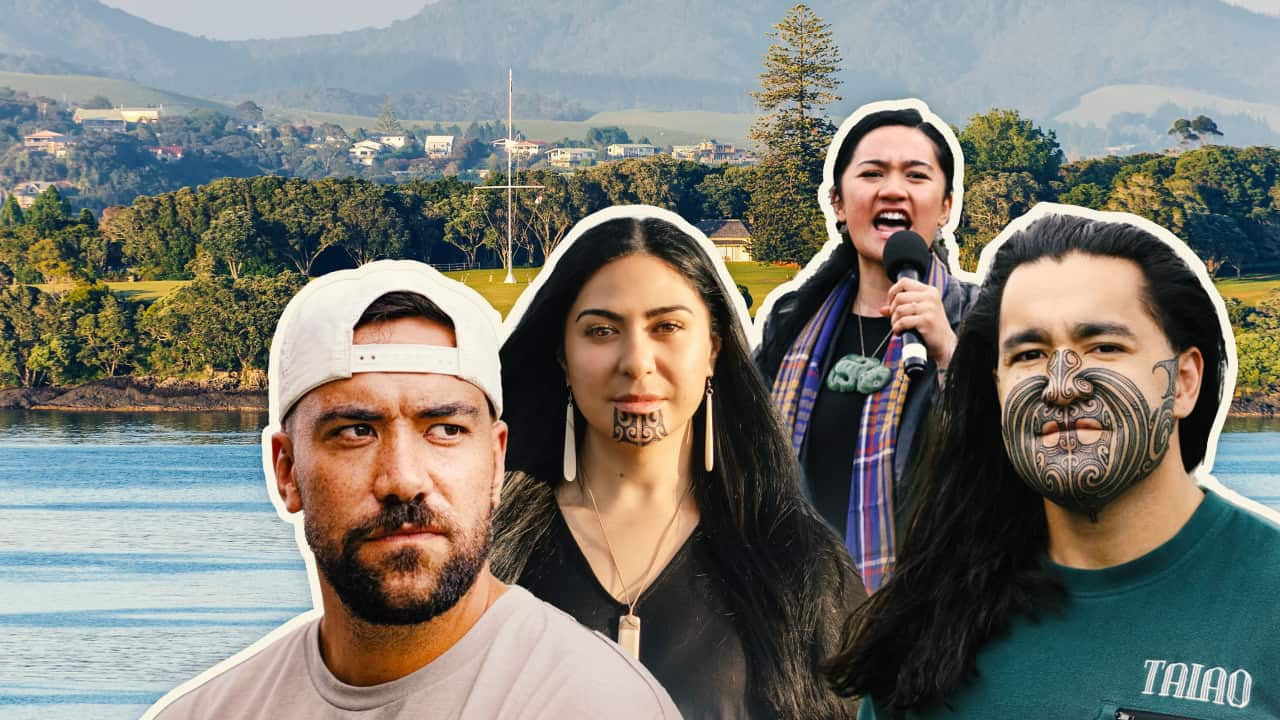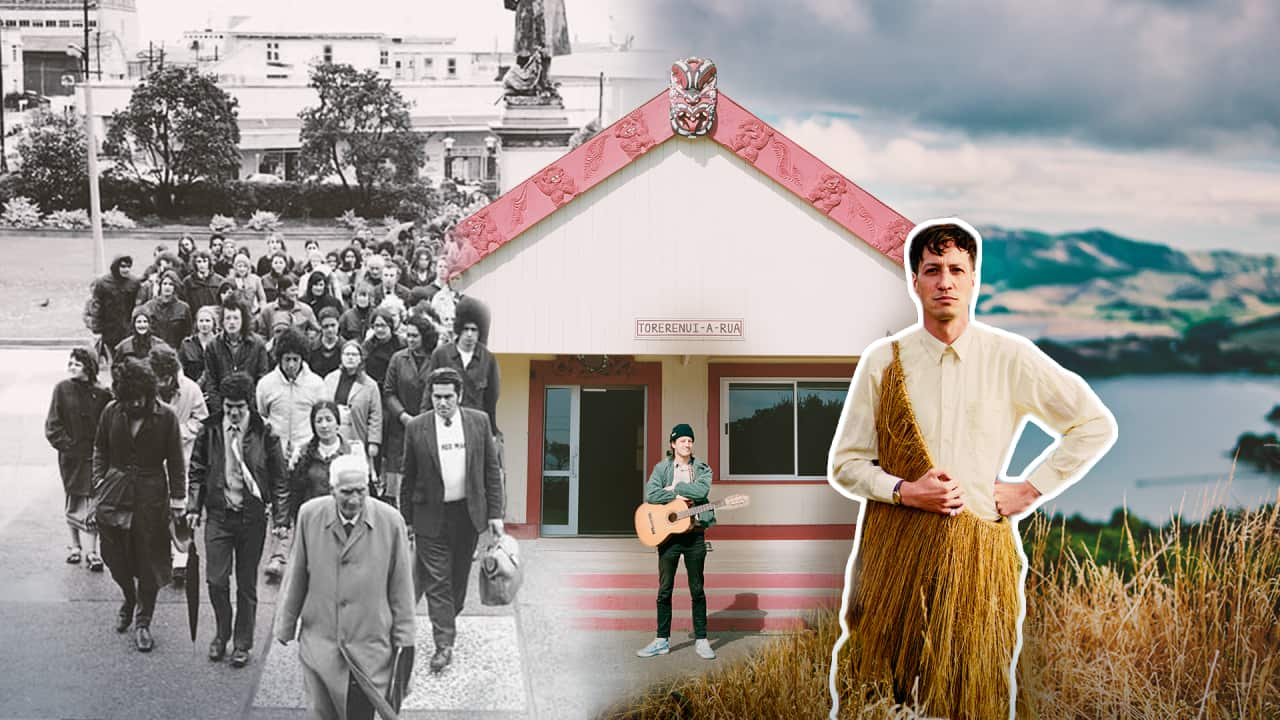

A generation to lose it, three to restore it: One man's quest to revive a language at risk
Once punished for speaking, now celebrated in song — te reo Māori is finding new life. For Marlon Williams, music has become both a personal reckoning and a powerful tool for revival.
Published
Marlon Williams is torn between two worlds.
E mawehe ana au ki nga ao e rua (I am split between two worlds) are the first words sung in the new documentary that follows one of Aotearoa's (the Māori name for New Zealand) greatest musical exports, Marlon Williams.
Two Worlds — Ngā Ao E Rua, follows the 34-year-old musician as he records his first album sung entirely in te reo Māori (the Māori language) — Te Whare Tīwekaweka — and documents the challenges of reconnecting with culture, deepening ties with community, and reclaiming his reo (language).
Williams identifies as part Māori, part Pākehā (Māori for a white New Zealander) — from both Ngāi Tahu and Ngāi Tai iwi (tribes). He has always sung in te reo Māori, but is still not fluent in it.
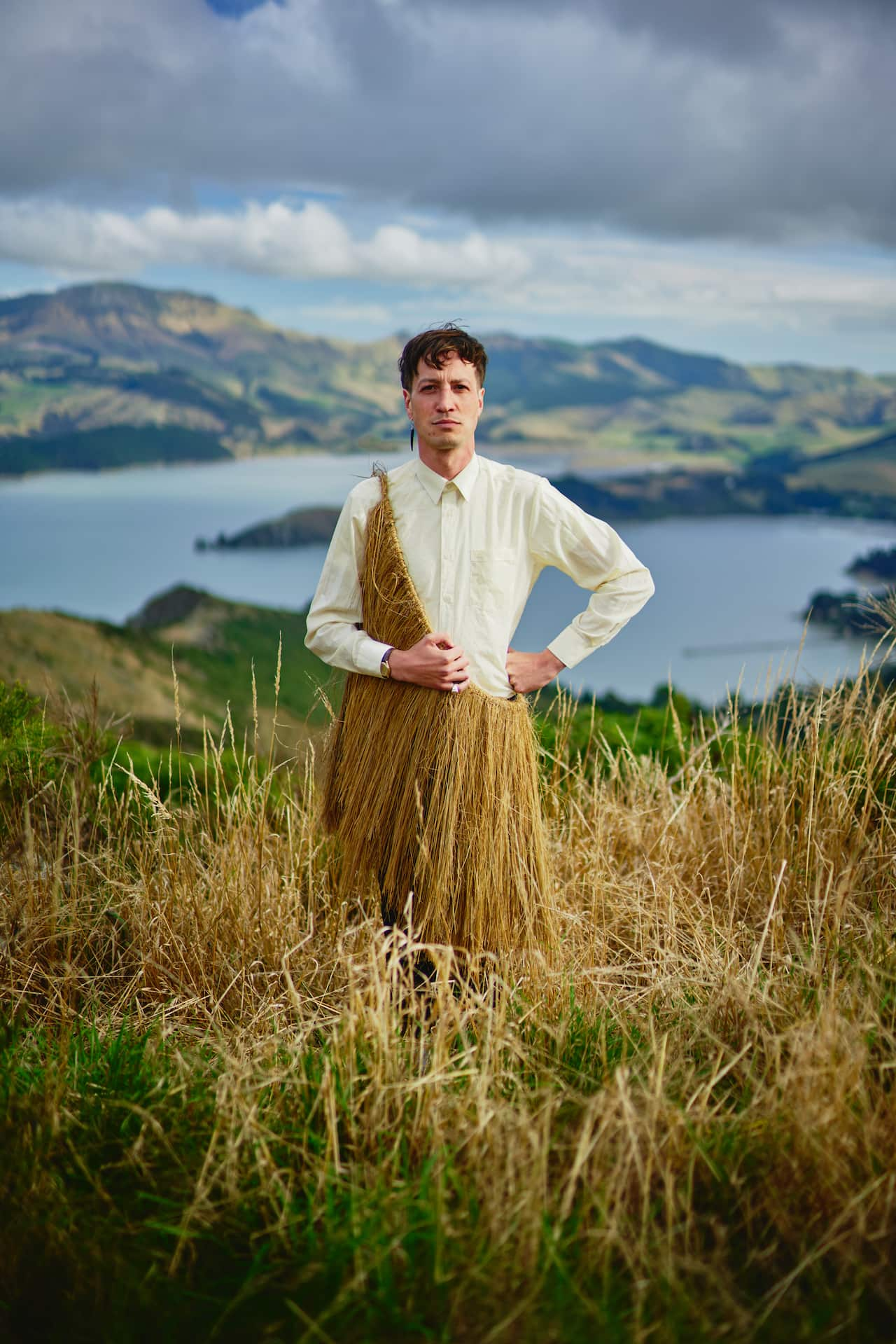
It's a challenge many Māori share today. While language revitalisation efforts have ramped up in recent decades, reclaiming Indigenous languages is still an uphill journey. And for Williams, music is the strongest way back.
"This documentary is about my process in making an album fully in te reo Māori and the Māori language and all the bumps and slides along the way," Williams told SBS News after its Melbourne International Film Festival premiere.
"Maori is always a beautiful thing to sing in. Like a lot of things in my life, music was the way to find a new way of thinking. But it was very patchy and certainly wasn't fluent.
"I'm still not fluent, but music's helped me find a sense of entitlement to the language."
Lost languages
Te reo Māori was once the language of daily life in Aotearoa. But British colonisation and assimilation policies sought to erase it — and almost succeeded.
Children were told Māori "had to be left at the school gates" and that English was "the bread-and-butter language". Those who spoke it risked corporal punishment.
The result was stark: In 1913, around 90 per cent of Māori schoolchildren spoke te reo (the language). But by 1975, that number had plummeted to just 5 per cent.
For director Ursula Grace Williams, the Samoan filmmaker behind the documentary, that kind of loss is deeply personal.
"My mama is from Apia — she was born in Samoa and came over to New Zealand in the 1960s," Ursula told SBS News. "At that time, it was assumed that you needed to assimilate into colonial culture."
Her Nana, who was born in Vaimoso, a village on the island of Upolu in Samoa, prohibited her mother from speaking Samoan at home.
"My grandmother — without any shame or disrespect at all to her — but my mum wasn't allowed to speak Samoan in the house at all."
We lost our connection to our own mother's tongue.Ursula Grace Williams, director of 'Marlon Williams: Two Worlds – Ngā Ao E Rua'.
"My mum was not allowed to speak, so we weren't allowed to speak. I know small greetings … but it's a shame I don't speak the language."
She says her experience made her understand what it was like to "lose something beyond your control that should belong to you forever".
"You hold it in your bones."
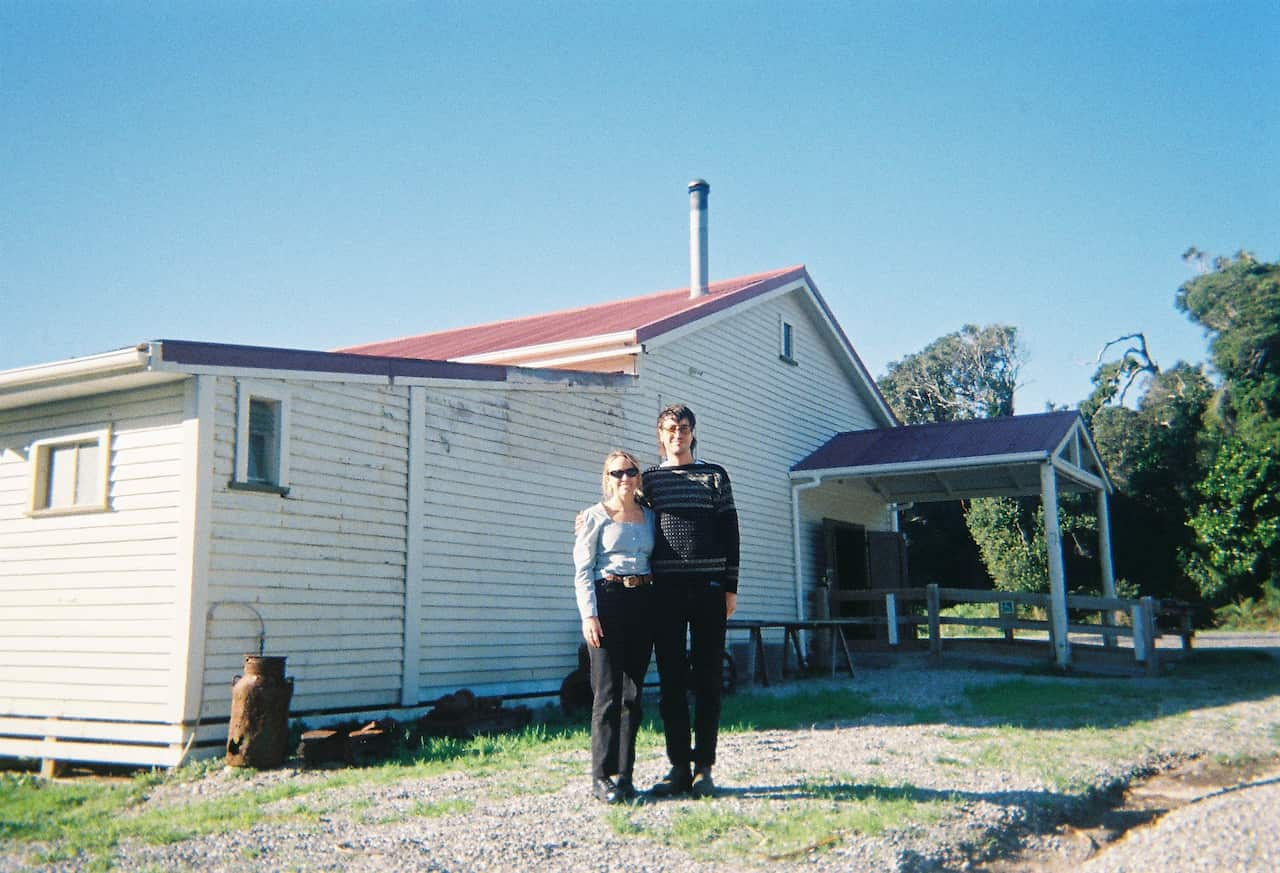
From loss to revival
By the mid-1970s, Māori activism was pushing back.
In 1975, a petition with 30,000 signatures called for te reo to be taught in schools. It became a turning point, sparking the creation of kōhanga reo (Māori-language preschools), bilingual and immersion schools, adult learning initiatives such as Te Ātaarangi, and Māori broadcasting.
Te reo Māori became an official language in 1987, the direct result of the WAI11 Waitangi Tribunal claim. This Māori Language Act 2016 reaffirmed that status, acknowledged the harm caused by past language suppression, and committed the Crown to revitalisation.
The current strategy sets ambitious goals for 2040: over 85 per cent of New Zealanders will value te reo Māori as central to national identity; one million people will hold a basic conversation in it; and 150,000 Māori over 15 will use it as often as English.
Ursula saw the benefits firsthand. "I was lucky enough that my mum had the foresight when there was a resurgence of Māori in New Zealand in the 90s that she enrolled me into a bilingual unit," she said.
"My first learned language was actually te reo Māori. There are a lot of similarities [with Samoan]."
"It's Te Moana Nui a Kiwa — it's a broader region of the Pacific."
Te Moana Nui a Kiwa is a name used in both Samoan and Māori cultures to represent the Pacific Ocean — the significance of it as a source of life, a pathway for exploration, and a connector of people and culture. It is 'The Great Connector' of all Polynesia.
Music as a gateway to 'preserve difference'
For Marlon Williams, preserving Māori culture through music is part of that continuum.
"It's a very basic human thing to preserve difference," he said. "In an increasingly globalised world … it's important to be able to understand different pedagogies and methodologies of understanding of life."
Waitata — or Maori songs — have always carried whakapapa (genealogy), identity and history. Williams joins a long legacy of artists recording in te reo, but, as Dr Julian Rawiri Kusabs notes, that wasn’t always possible.
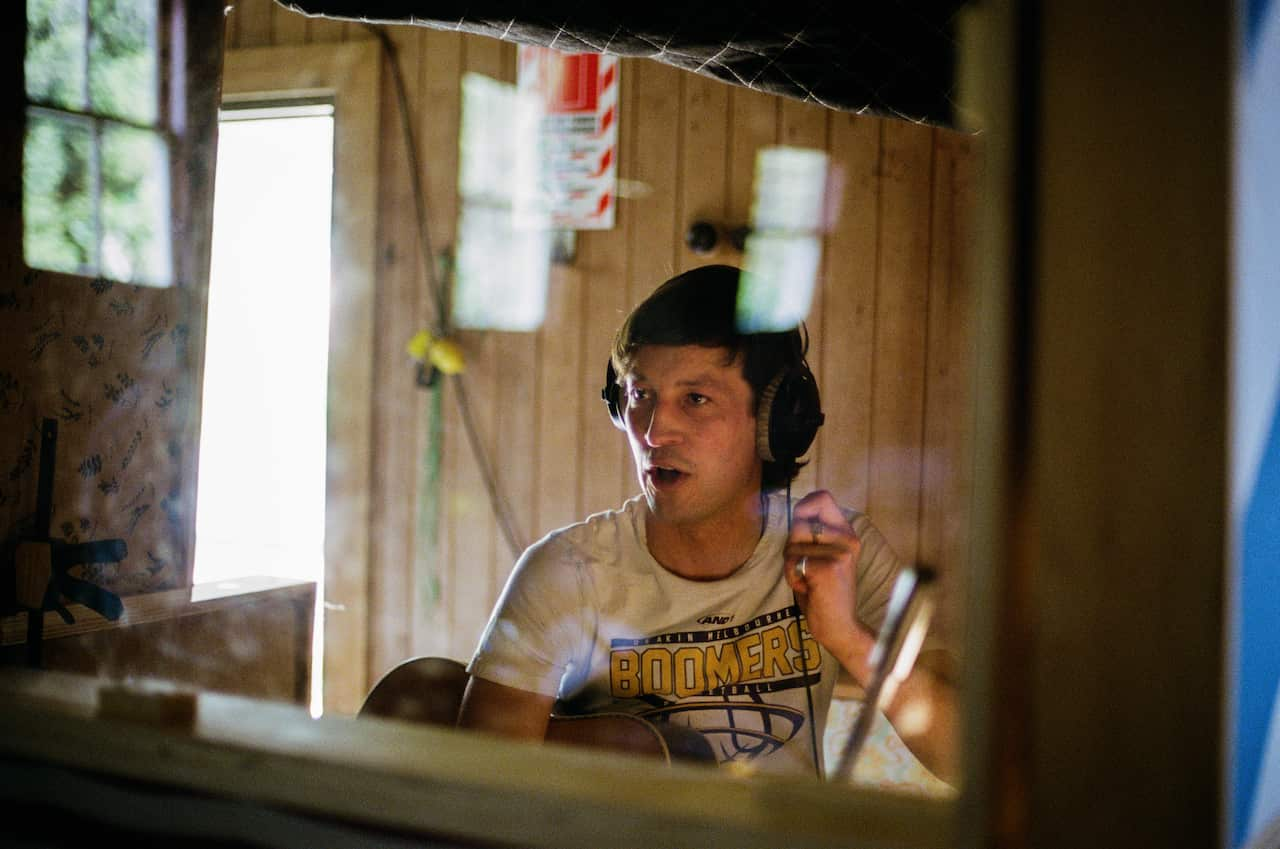
"It hasn't always been viewed as commercially viable," Kusabs, a Maori educator at the University of Melbourne with Ngāti Tūwharetoa, Te Arawa, Ngāti Awa, Ngāti Maru (Hauraki), and Tainui iwi affiliations, told SBS News.
"People have had to fight to get that. But in the last few decades, you've had a lot of artists — both Māori and non-Māori — recording and re-recording songs in the language."
Kusabs says Marlon's album shows that fluency isn't the only measure of authenticity.
"The fact that there are opportunities for someone like Marlon to go back to the language and have the opportunity to record and engage in it, even despite the fact that there aren't resources that make fluency available, that's a really positive step," he said.
There's a range of ways that Maori people can still gain meaning even if they're not necessarily fluent.Dr Julian Rawiri Kusabs, Māori Educator at the University of Melbourne
"There's still a lot of meaning and value that can be gained from having the language more available and having more culture available."
"Even if they can't understand every word, just being able to hear the sounds, hear the intonations, hear the styles and connect with a long tradition that way."
The protest of the everyday
Revival efforts have shown some signs of success.
Government data shows the proportion of New Zealanders able to speak te reo in daily life rose from 24 per cent in 2018 to 30 per cent in 2021. Almost a quarter of Māori said they spoke te reo as one of their first languages, up 17 per cent in 2018, with younger people most likely to speak more than a few words or phrases.
But tensions remain.
Kusabs warns of recent hurdles: attempts to roll back te reo in official settings, cuts to Māori language teacher training, and a growing backlash to bilingual efforts.
"After all these fights for revitalisation, you're seeing a bit of pushback recently against having it be given equal prominence and equal opportunity and equal standing," he said.
"I think that's part of fighting for a language and also fighting for an Indigenous culture — it's filled with those difficulties, setbacks, and struggles."
For Ursula, the most powerful response to the film is one of persistence and the "protest of the everyday".
"It's those stories of the everyday — in terms of where we choose to place our time and who we choose to connect with and how we choose to position ourselves within society — those are the things that chip away at discussions and narratives and the context of where we are," she said.
"It's the protest of the everyday … standing in yourself and speaking your language and reconnecting with fragments of who you are."
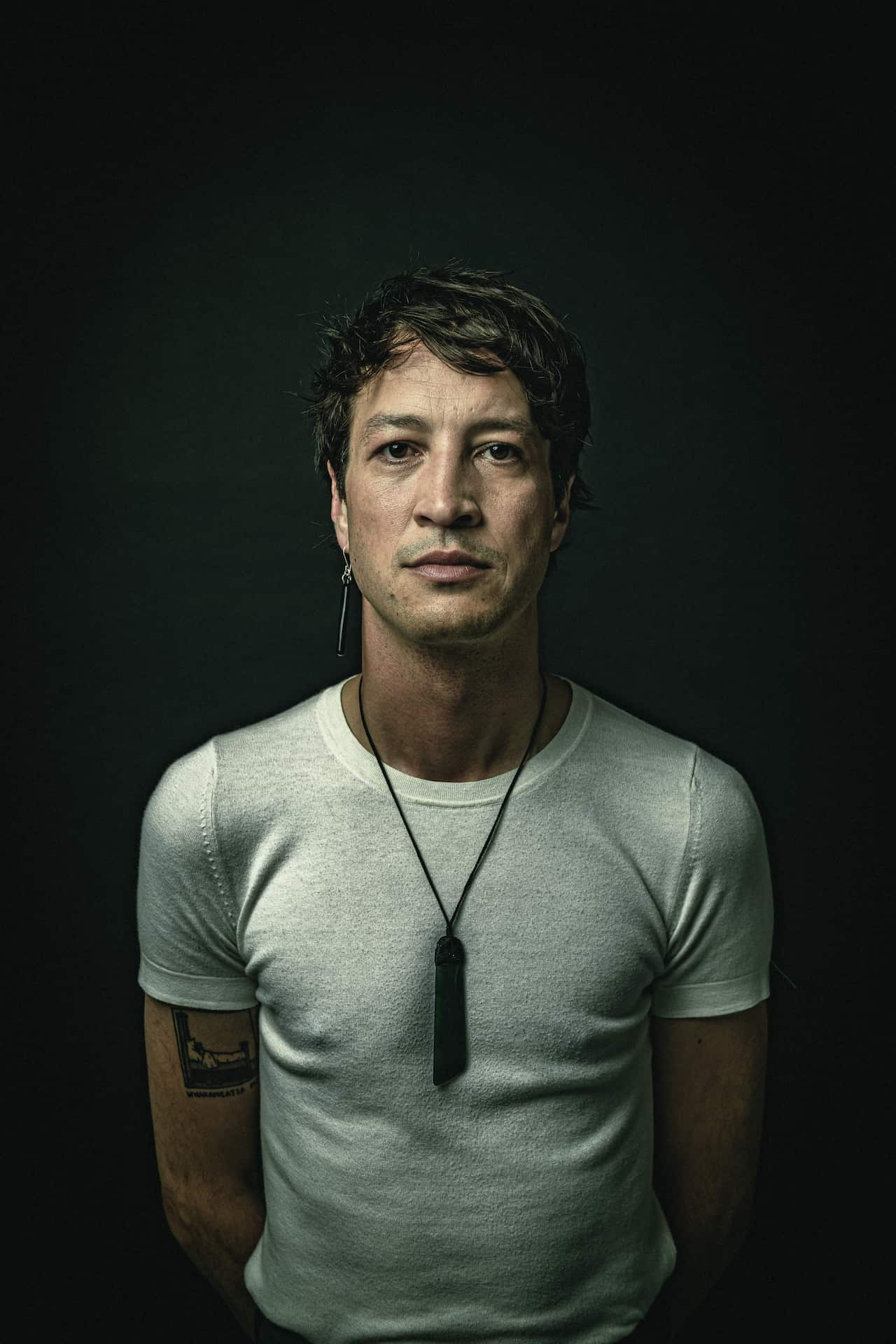
'It's yours by birthright'
For Marlon Williams, that persistence has already had an effect.
"There have been people reaching out," he said.
"Because I'm not fluent and because on one level, I'm not classically Māori in appearance, it feels like people have been afforded a little bit more room to find their own way back to [learning Māori] without the sense of shame or embarrassment that comes with that."
Shame is always there when trying to reclaim a language that has been lost over generations.Marlon Williams
He hopes that his album and documentary will help others shed the shame, even a little bit.
"It's there and it's yours by birthright to go into that world," he said. "That sense of shame at having lost it [the language] — it's not a reason not to do it."
"It's the reason to get into it because that shame is something that's been overlaid into you and the estrangement is built on the system."
"It's all the more reason to feel like you've got the right to be able to do that and go into that world."
For the latest from SBS News, download our app and subscribe to our newsletter.

